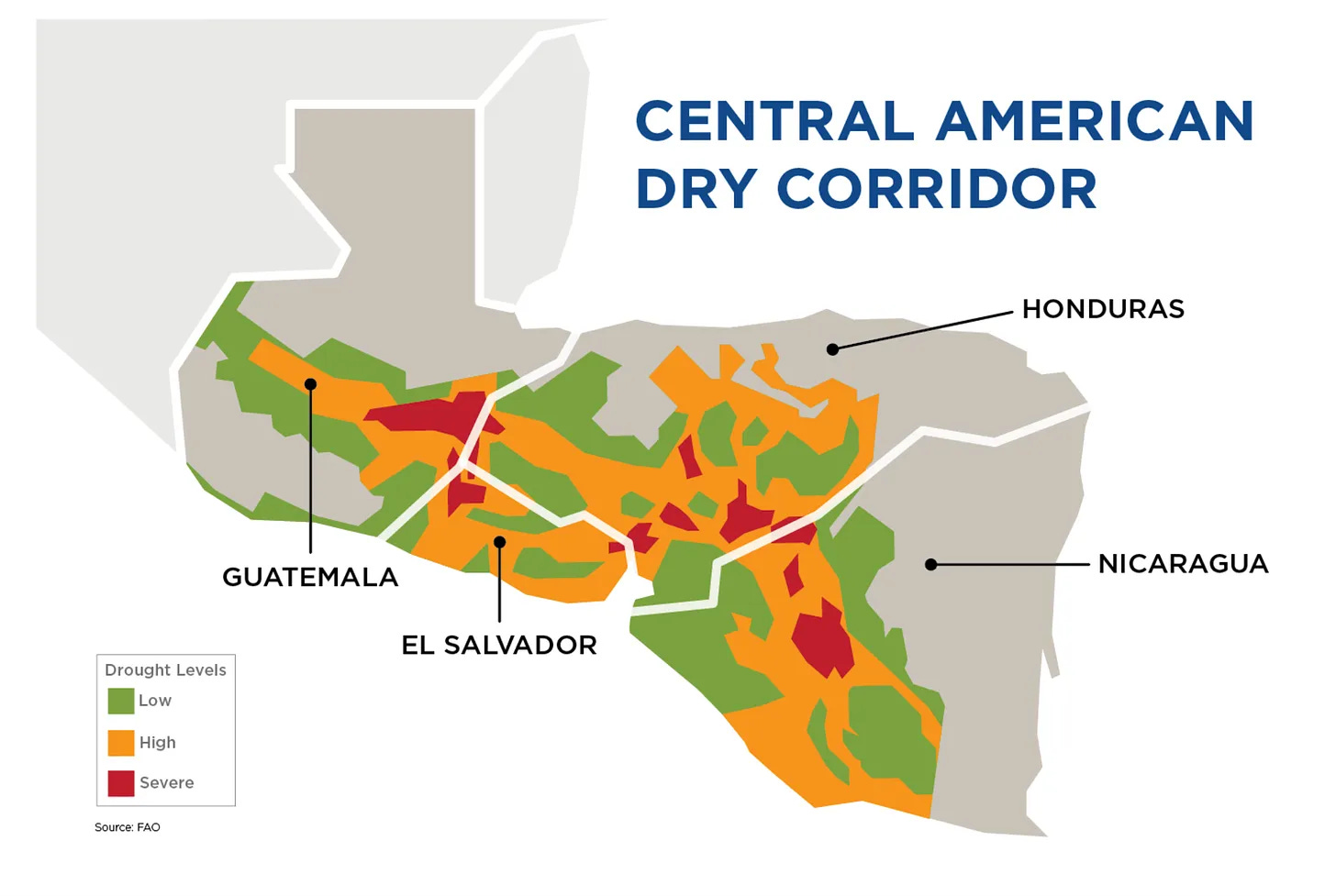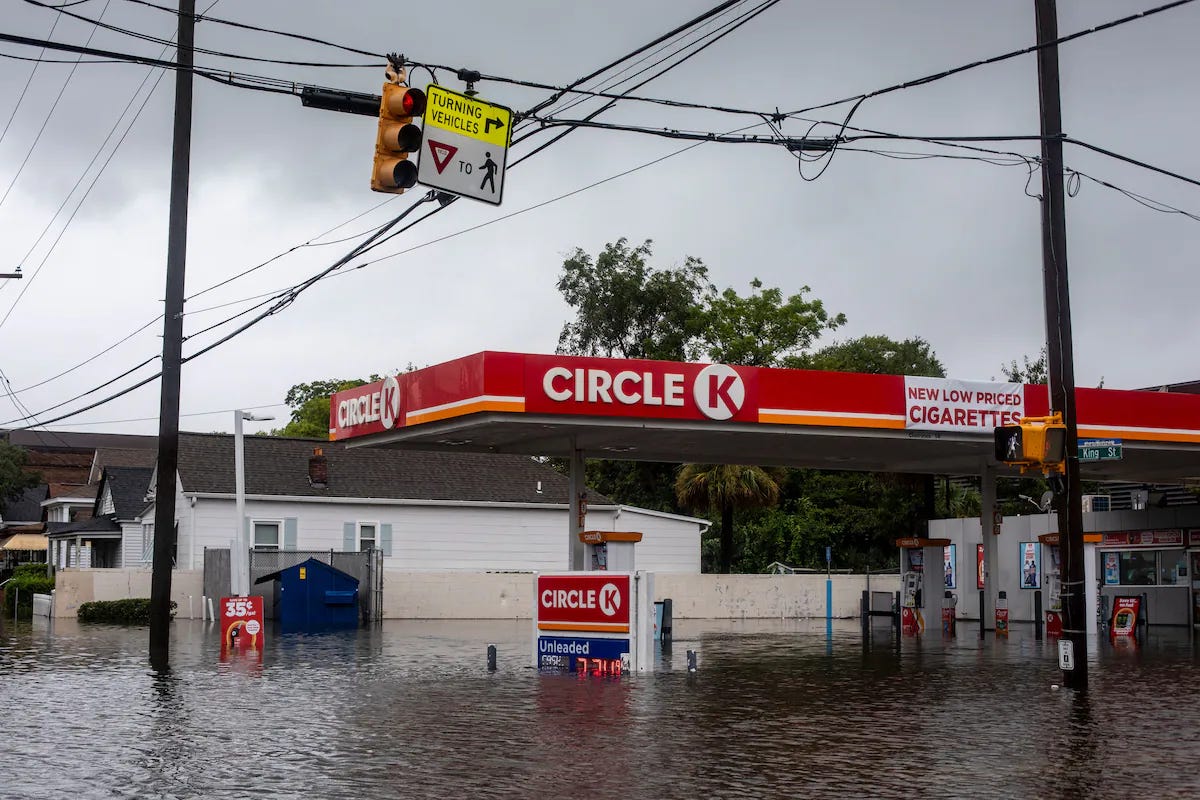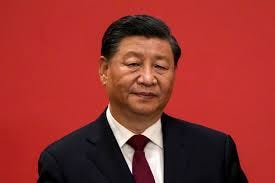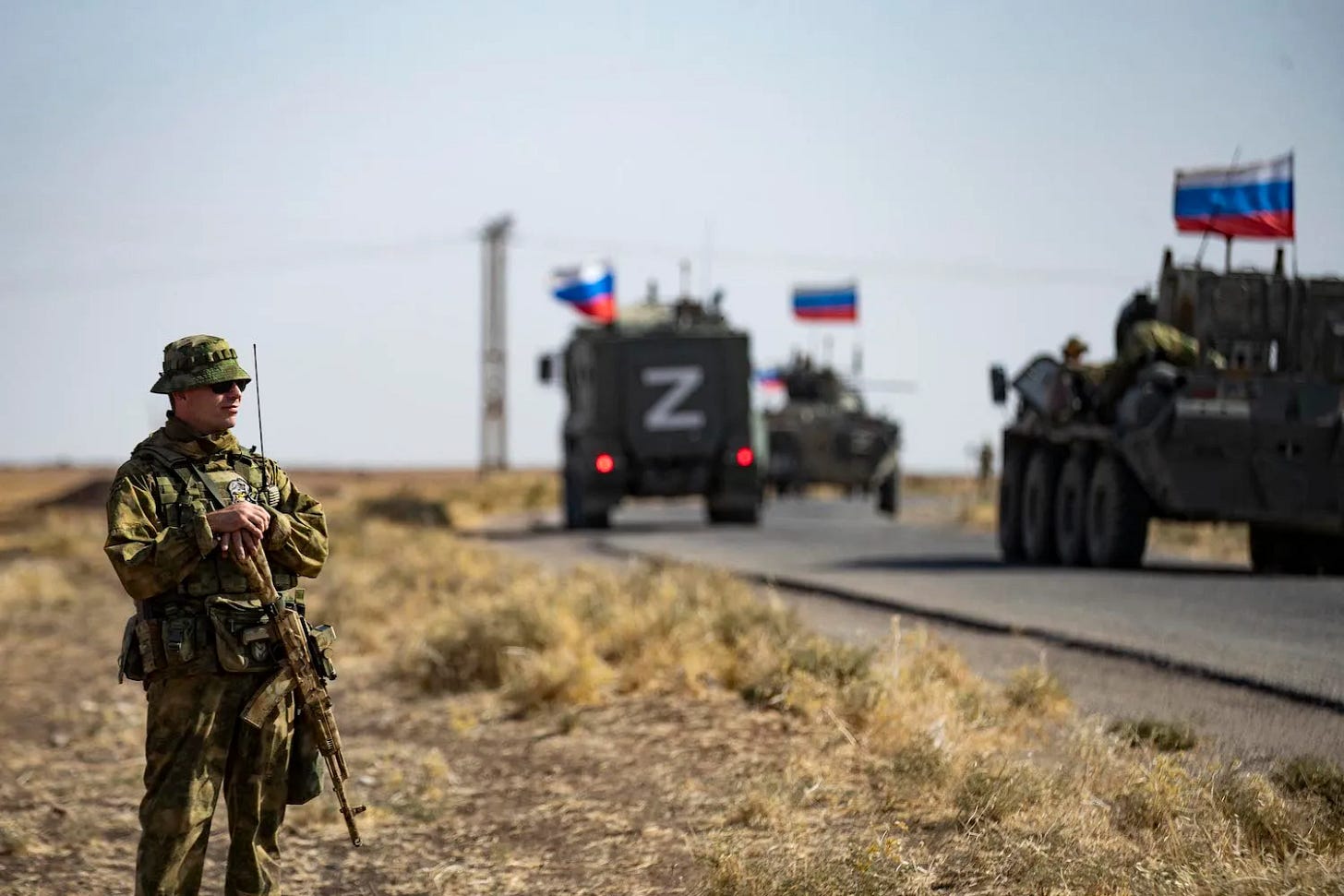1) Central America’s “dry corridor”
CATHOLIC RELIEF SERVICES: The Climate Crisis in Central America: Facts and How to Help
H/T Jeffrey Itell.
A map detailing the long and still ongoing drought situation (Dry Corridor, or DC) across the Northern Triangle states. CRS estimates that 7m-plus locals are in a food-insecure situation as a result, with half a million in severe danger. Since we’re talking about only 10m total living in the DC, that’s the bulk of the population being seriously stressed. Coincidentally (I think not), 70 percent of the population there are poor.
CRS details the seven clustering effects of climate change on the region:
The most affected populations there?
Rural communities, farmers, indigenous peoples, women, children and the elderly
Adam Tooze’s Chartbook substack, working off the CRS data and other sources, has a very powerful post on the subject. It ends with this argument:
What is needed is not more border controls and militarized policing, but a pooling of governmental resources amongst the stronger players in the region including USA, Mexico the richer Caribbean states and Colombia, not to oppose, but to facilitate, support and invest in the extraordinary human energy, grit and determination that is the counterpart to those remittance flows.
Socialize the risk latitudinally. That’s my message in America’s New Map: The future is North-South integration. There is no alternative.
Tooze is worth following.
2) “Children in China are starving!”
WAPO: South Korea recycles 98% of its food waste. What can it teach the world?
That what US Boomers heard at dinner tables as kids: Clean your plate! Don’t you realize that kids in China are starving?
And yeah, they were starving back then, thanks to Mao — mass murderer without compare in human history.
The real point, though, was about avoiding waste, which we humans still do a bad job on preventing, as we trash roughly one-third of the calories produced by agriculture in all its forms.
Somehow, this WAPO story says, South Korea has cracked that code:
Starting at 5 a.m. each day, dozens of trucks bring more than 400 tons of stinky, sticky food waste from restaurants and homes to a facility the size of two football fields — which transforms it into enough green energy to power about 20,000 households.
The Daejeon Bioenergy Center is one of about 300 facilities that enable South Korea to recycle nearly all of its 15,000 tons of daily food waste, which can be composted into fertilizer, fed to livestock or turned into biogas, a kind of renewable energy.
“This place takes care of half of the entire daily food waste that the city of Daejeon produces,” said Jeong Goo-hwang, the plant’s chief executive, referring to a city of 1.5 million about two hours outside Seoul.
Without it, most of the scraps would have gone into the ground, polluting the soil and generating methane — a greenhouse gas far worsethan carbon dioxide in terms of global warming in the short run.
When South Korea started tackling this problem 20 years ago, it threw away 98 percent of its food waste. Today, 98 percent of food waste is turned into feed, compost or energy, according to the South Korean Ministry of Environment. It achieved this by banning food scraps from landfills and mandating that all residents separate their food waste from their trash and recycling — and to pay for the service through fees and fines.
Long time throughline of mine: How we lived and consumed when only a quarter of the world was middle class (1950) cannot possibly be anything like how we live and consume in a world where the global majority middle class stands at 65-70% (rising rapidly from 2B in 2000 to 4B in 2020 t5o 6B in 2050). Naturally, a revolution in resource utilization is compelled, with a huge part of that being the elimination of waste in systems that, for decades, never really sought to improve themselves on that basis. Food is the classic, but so is water and electricity.
The waste is everywhere and eliminating it is the fastest and easiest way to reduce humanity’s environmental footprint in a responsible manner.
Also a good way to improve profitability.
3) An industrial sign of the Military Singularity
PERPLEXITY AI: Defence Tech Anduril Hits $14B Valuation
A start-up defense contractor suddenly worth $14B?
According to TechCrunch, Bloomberg, and others, defense technology startup Anduril Industries has raised $1.5 billion in a new funding round, reaching a valuation of $14 billion and positioning itself as a rising competitor to traditional defense contractors.
Guess what it makes.
And here’s where it plans on making them en masse.
The centerpiece of Anduril's expansion plans is Arsenal-1, a massive 5 million-square-foot manufacturing facility designed to hyperscale defense production. This state-of-the-art factory aims to produce tens of thousands of autonomous military systems annually, employing over 1,500 workers. Arsenal-1 will leverage a proprietary manufacturing software platform that integrates modeling, simulation, threat-based operational analysis, and production management across the product lifecycle.
There’s your revolution in military affairs in the works.
4) Putin hasn’t got the balls!
NEWSWEEK: Russian Railway Networks Facing 'Imminent Collapse': Report
Story on how the Russian railroad system is facing collapse (finally) over the long-term impact of Western sanctions regarding Ukraine: it all comes down to a profound shortage of ball bearings.
It’s always the small things that get you in the end.
For want of a nail the shoe was lost.
For want of a shoe the horse was lost.
For want of a horse the rider was lost.
For want of a rider the message was lost.
For want of a message the battle was lost.
For want of a battle the kingdom was lost.
And all for the want of a horseshoe nail.
Perhaps Putin best get back on the begging trail to the PRC and DPRK.
5) Been saying it for years; wish I had written this beauty
FOREIGN AFFAIRS: The Taiwan Fallacy
Smart, well-argued analysis.
The easiest mental check is the counterfactual I pose in America’s New Map:
The world could have cared less if, like Belarus, Ukraine had voluntarily “unionized” with Russia. (Similarly, Taiwan’s peaceful and voluntary union with China would little alter the East-West strategic balance—save to indicate the growing attraction of Beijing’s brand.)
We have so much authoritative analysis out there today saying that, if America “loses” Taiwan (Is it not ours to lose!), then we have lost the big fight with China and booyah! China wins the world!
It’s all nonsense at its core, and this piece dissects that fallacy nicely:
There are many reasons to help defend Taiwan: its significant economy, its microelectronics prowess, its mature democracy, the effect its seizure might have on U.S. credibility. But keeping China’s military in check is not one of them. Taiwan is a small, 90-mile-wide island just off China’s vast coast. If it became a fully armed Chinese province, the difference in military power between Beijing and Washington would barely shift.
No kidding.
Make the “scary” argument on semiconductors for now, and then watch even that rationale become OBE.
The bigger point made here:
If, as many hawks suggest, China’s ultimate aim is to become the world’s dominant country, then Washington should prepare to wage and win a wider and lengthier conflict, rather than obsessively structuring the U.S. military to directly counter China in the Taiwan Strait. A conflict starting with a Chinese invasion would almost certainly grow protracted and expand. U.S. forces, therefore, need to focus on protecting regional allies—Japan, the Philippines, and South Korea—and, indeed, the rest of the world from Chinese coercion.
Our obsession with Taiwan is just plain unhelpful and strategically myopic.
6) The new abnormal
WAPO: In Charleston, floods are a ‘constant existential fear’
Get used to reading more and more of these sad tales:
When Tropical Storm Debby’s floodwaters surrounded Damon Black’s home in the heart of this flood-prone city, he and his family were ready. They pulled up rugs and moved furniture upstairs, because in little over a year of living there, they had endured five floods.
“It’s virtually just a constant existential fear we have throughout the year,” Black said of the specter of floods in the historic Harleston Village neighborhood, near the tip of the city’s picturesque peninsula. In a December storm, water got inside the house; it didn’t breach the floorboards this time.
That is non sustainable for anybody.
And yeah, it is all climate change:
Warmer global temperatures mean heavier downpours such as this one, which had dumped more than a foot of rain on parts of coastal South Carolina by Tuesday afternoon, with more rain expected. Flood risks are rising as sea levels surge, too. Here and across the American South, water is rising faster than almost anywhere else on Earth, according to a Washington Post analysis.
How many US metros will pony up the vast sums needed to turn their city into a mini-Netherlands?
Good question.
Charleston’s average sea level has risen by seven inches since 2010, four times as fast as during the previous 30 years, according to The Post’s analysis of accelerating sea level rise across the South.
Sounds like a losing hand to me.
7) Another province heard from
FOREIGN AFFAIRS: China’s Real Economic Crisis
We’ve spotted this argument all over the place for several years now, but this is a tight and spot-on rendition:
As the party sees it, consumption is an individualistic distraction that threatens to divert resources away from China’s core economic strength: its industrial base. According to party orthodoxy, China’s economic advantage derives from its low consumption and high savings rates, which generate capital that the state-controlled banking system can funnel into industrial enterprises. This system also reinforces political stability by embedding the party hierarchy into every economic sector. Because China’s bloated industrial base is dependent on cheap financing to survive—financing that the Chinese leadership can restrict at any time—the business elite is tightly bound, and even subservient, to the interests of the party. In the West, money influences politics, but in China it is the opposite: politics influences money. The Chinese economy clearly needs to strike a new balance between investment and consumption, but Beijing is unlikely to make this shift because it depends on the political control it gets from production-intensive economic policy.
It’s almost as if the CCP prefers the middle-income trap over true economic success simply because it fears what China’s burgeoning middle class would inevitably demand over time: more of a political say.
This is why I don’t sweat the Chinese threat over the long haul: the CCP simply won’t let that “win” unfold, so, ultimately, the resulting “loss” will mean the end of the CCP.
Count on it.
The Party has tapped out on extensive growth and will fail at intensive growth primarily because it doesn’t trust its own people.
Glad but true.
8) US defaults to Russia defaults to Iran
FOREIGN POLICY: Why The West Shouldn’t Celebrate Russia’s Withdrawal from Syria
The Russians invariably move on, feeling the institutional strain from the Ukraine battlespace.
And the Iranians move in.
If you want to stabilize a failed state, you have to go with the regional integrators — not outsiders. We learned that lesson (again) in Afghanistan and Iraq and Syria. Now, it’s Putin’s turn.
You want to fix things locally, you go with the neighbors, whether you like them or not.
Good ongoing example: look who’s stepping up most vigorously within NATO vis-a-vis the Russian threat? Those on the front lines — namely, the old Warsaw Pact countries.
9) Awaiting the right tragedy to get the right law
REUTERS: As U.S. heat deaths rise, some landlords oppose right to air conditioning
Interesting factoid: 12% of homes in the US have no AC.
Long ago, basic heat got codified as a sort of human right in housing. Now, climate change mandates something similar regarding cooling:
In L.A. County, the board of supervisors – its five-member governing body - is expected to vote later this year on a bill that could impact the county's 3.4 million households, more than half of whom are renters.
"There once was a time where we realized that people dying of the cold indoors is something that we needed to regulate," said L.A. County supervisor Lindsey Horvath who put forward the motion. Many U.S. jurisdictions require that rental housing can meet minimum indoor temperatures: California state law stipulates a minimum of 70 F (21 C).
"Now with the way that the climate has shifted, we also have to think about those higher [temperatures]," she said.
By mid-century, central Los Angeles is expected to experience three times more days of temperatures above 95 F than it did between 1981 and 2000.
A basic human right. Get used to that argument and consider it’s unfolding on a planetary scale because … yeah … that’ll be a thing alright.
10) Don't get me wrong, I love him like a brother. Just not one of mine.
NYT: Japan Needs Foreign Workers. It’s Just Not Sure It Wants Them to Stay.
Hmm. Weren’t the Japanese going to focus solely on robots for elder care?
An aging Japan will be forced into all manner of inconceivable compromises, as I have been writing for two decades now. From the NYT story:
The number of foreign workers has quadrupled since 2007, to more than two million, in a country of 125 million people. Many of these workers escaped low wages, political repression or armed conflict in their home countries.
But even as foreign employees become much more visible in Japan, working as convenience store cashiers, hotel clerks and restaurant servers, they are treated with ambivalence. Politicians remain reluctant to create pathways for foreign workers, especially those in low-skill jobs, to stay indefinitely. That may eventually cost Japan in its competition with neighbors like South Korea and Taiwan, or even places farther afield like Australia and Europe, that are also scrambling to find labor.
Remember when we were told that Japan (and Asia in general) valued families and elders in ways that no Western society could ever approximate?
Turns out modernization changes Asian society as much as any Western one.
11) Cats and dogs, voting together!
WAPO: Are Democrats really more likely to be childless cat ladies?
Somebody has to do this analysis.
I’m just praying that cats rule and dogs drool this November.
But I guess that, if we really wanted bipartisanship, it’d be rabbits all the way.
12) Born this way
AXIOS: The hyper-politicization of the American family
If you want a father-daughter take on this, see
Podcast: Boomer v. Zoomer II
Okay! We got enough positive feedback from last week’s inaugural podcast to keep it going for the near term — all dependent on Mei’s ability to spare time as she holds down her three jobs and her full slate of classes at the University of Wisconsin-Madison!
.




















